Our Student ACCESS department provides coordinated services for students with disabilities.
- Eligibility
- Disability Accommodations
- Process
- Notetaking & Testing
- Volunteers for Notetaking
- Resources
Student ACCESS is committed to ensuring equal access to Honolulu Community College (HonCC) facilities, programs, activities, and services by students with disabilities. Its goals are:
- To provide reasonable accommodations to qualified students.
- To promote an informed and hospitable learning community.
- To advocate for campus-wide ADA/Section 504 compliance.
Eligibility for Services
To be eligible to receive disability accommodations students must:
Provide proper documentation of disability by an appropriate certified professional to the Honolulu Community College Student ACCESS office for evaluation.
- Make an appointment with Student ACCESS to discuss your special needs.
- Complete an Service Request Form (PDF) or obtain one from the Student ACCESS office once documentation has been approved.
Additional steps to initiate requests for specific accommodations:
- For alternate format materials, provide an up-to-date course schedule to the Student ACCESS office immediately after registering and an accurate list of textbook titles and editions for each class.
- For classroom accommodations present the Service Request Form (PDF) to Student ACCESS and fill out appropriate request forms.
Disability Accommodations
The following accommodations are available through the Student ACCESS Office:
Special equipment:
- Digital recorders
- Talking calculators
- Amplification devices
- Reading Edge
- Large screen monitor
- Closed Circuit TV
Materials:
- Building access and evacuation plan
- Audio or electronic books
- Adjustable desks and chairs
- Enlarged materials
Services:
- Sign language interpreters
- Enlargement of printed materials
- Testing accommodations
- Notetakers
- Scribes
- Readers
- Lab assistants
Computer access:
- Zoomtext 9.1
- Dragon Professionally Speaking Ver. 7
- Adaptive keyboards
Provide Feedback on Your Experience
To provide feedback to Student ACCESS on your experience using these services, please print out the Student ACCESS Survey of Service (PDF), complete the survey, and submit to Student ACCESS office. Please call (808) 845-9272 for additional questions regarding the survey. Mahalo for your time in providing this valuable feedback.
Tips for Getting Off to a Smooth Start
Timeliness is the key to being adequately prepared for each semester. Students should take the following steps in advance of each semester to make sure their semester gets off to a smooth start:
- Register as early as possible (make use of priority registration if eligible).
- Before the semester begins, contact your academic advisor before registering and discuss any special needs, major requirements, course competencies, course load, and instructors. You may also wish to contact potential instructors to discuss course requirements, types of in-class activities, texts and materials, field trips, and necessary accommodations.
- As soon as possible, request accommodations at Student ACCESS. Late requests may result in a delay of services.
- When requesting accommodations, provide an up-to-date course schedule.
Disability Accommodation Process
Notetaking & Testing
Notetaking
Testing
Volunteers Needed for Notetaking
Notetakers are recruited from the Student ACCESS pool of student assistants, teacher recommendations, or students enrolled in classes in which notetaking requests originate. Notetakers must be enrolled in at least 6 credits within the University of Hawaii system, possess strong listening and writing skills, and maintain an excellent attendance record. Notetakers are required to submit one set of class notes for evaluation. Notetakers must complete all student assistant work agreement forms before officially beginning the job. Notetakers are paid at the A21 student hourly rate and are required to fill out and turn in time sheets on posted time sheet due dates in order to be paid on time.
For more information or to volunteer your services, please contact us.


